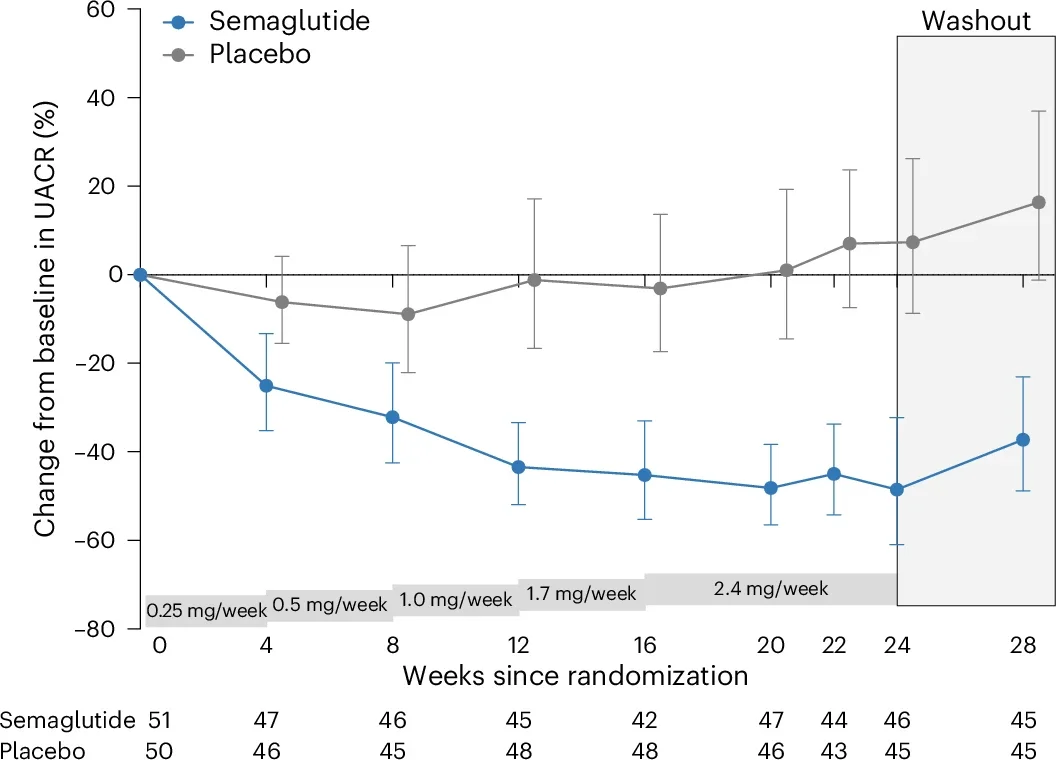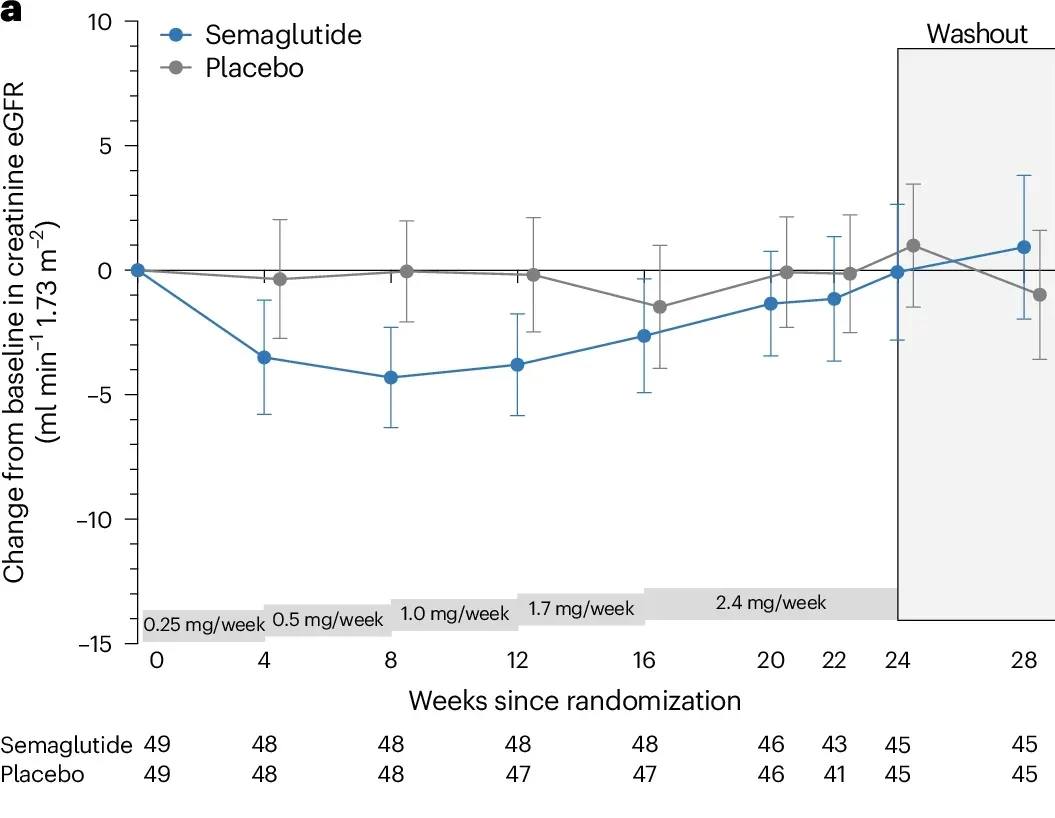More than two billion people worldwide live with overweight or obesity, conditions closely linked to an array of health complications. Among these, chronic kidney disease (CKD) and type 2 diabetes stand out for their severe impacts on health. Both conditions elevate the risk of kidney function decline and cardiovascular problems.
While diabetes is a known driver of kidney damage, obesity alone can lead to similar issues through mechanisms like increased pressure within the kidneys, inflammation, and oxidative stress.
Despite existing treatments, such as renin-angiotensin system (RAS) inhibitors and sodium-glucose co-transporter 2 (SGLT2) inhibitors, the risk of kidney and cardiovascular complications often remains high. This unmet need has driven interest in therapies that address both body weight and kidney health.
Semaglutide, a glucagon-like peptide 1 receptor agonist (GLP1-RA), has already shown promise in reducing cardiovascular events in people with type 2 diabetes and CKD. Studies suggest its benefits extend beyond diabetes management.

In a recent cardiovascular trial, semaglutide demonstrated a reduction in albuminuria, a marker of kidney damage, and slowed the decline in kidney function. This finding raised hopes that semaglutide could also benefit individuals with CKD who do not have diabetes.
To explore this possibility, researchers conducted a double-blind, placebo-controlled clinical trial. The study investigated the effects of once-weekly injections of semaglutide on albuminuria and kidney health in patients with CKD and obesity but without diabetes.
The results, published in Nature Medicine and presented at the American Society of Nephrology’s annual congress, mark a significant milestone in understanding the drug’s potential.
The trial enrolled 101 participants from Canada, Germany, Spain, and the Netherlands. Participants had a body mass index (BMI) of at least 27 and CKD, characterized by a urine albumin-to-creatinine ratio (UACR) between 30 and 3,500 mg/g and an estimated glomerular filtration rate (eGFR) of at least 25 ml/min/1.73 m². Half received semaglutide injections, while the other half were given a placebo over 24 weeks.
Related Stories
The results were compelling. Semaglutide reduced UACR by 52%, a substantial improvement in kidney health. The drug also reduced kidney inflammation by 30%, lowered blood pressure to levels comparable to those achieved with hypertension medications, and decreased a key marker of heart failure by 33%. Participants lost an average of 10% of their body weight, further contributing to improved health outcomes.
Hiddo L. Heerspink, the lead researcher from the University Medical Center Groningen, emphasized the dual effects of semaglutide. “The drug has direct effects on inflammation in the kidneys and reduces fat around the kidneys, lowering protein levels in urine. Indirectly, it aids by reducing weight and blood pressure,” he explained. These multifaceted benefits could represent a new frontier in CKD management.
The study highlights semaglutide’s potential, but longer-term research is necessary. The trial’s short duration did not allow for assessing its impact on dialysis rates, kidney transplants, or overall quality of life.
Heerspink expressed optimism about future investigations, stating, “All signals are green to test this drug in a larger study. We aim to determine if it can reduce the need for dialysis or transplants and explore its effects in patients with kidney damage but no obesity.”

However, one major obstacle remains: the unprecedented demand for semaglutide. Originally developed to treat type 2 diabetes, the drug’s popularity skyrocketed due to its weight loss benefits. This has created shortages, complicating efforts to scale up clinical trials.
Semaglutide belongs to a class of drugs that act on the intestinal hormone GLP-1, which regulates carbohydrate processing, insulin release, and appetite. By slowing digestion and promoting a feeling of fullness, these drugs improve glucose control and support weight loss. These mechanisms are key to semaglutide’s effectiveness in addressing CKD-related complications.
Participants in the recent trial reported eating less due to reduced hunger, a known effect of the drug. While the trial did not assess long-term lifestyle changes, these findings suggest potential for broader health improvements. The reduced kidney inflammation and improved cardiovascular markers observed in the study provide hope for better management of CKD and related conditions.
The trial’s success owed much to enthusiastic patient participation. Many joined seeking the weight loss benefits of semaglutide, which had already gained widespread attention. For some, this study offered a rare chance to access the drug amidst global shortages. The trial’s findings not only validated their participation but also underscored the drug’s potential to transform CKD care.

While the journey toward widespread adoption of semaglutide for non-diabetic CKD continues, these early results are promising. With further research, this drug could redefine treatment approaches for millions facing kidney disease, offering hope for improved outcomes and quality of life.
Note: Materials provided above by The Brighter Side of News. Content may be edited for style and length.
Like these kind of feel good stories? Get The Brighter Side of News’ newsletter.
The post Ozempic successfully treats kidney disease appeared first on The Brighter Side of News.